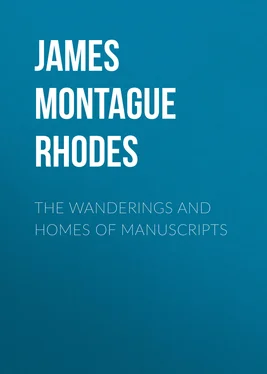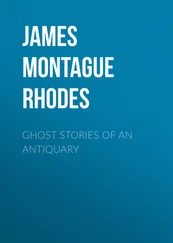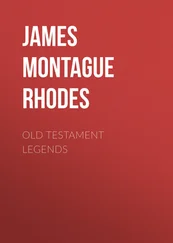Montague James - The Wanderings and Homes of Manuscripts
Здесь есть возможность читать онлайн «Montague James - The Wanderings and Homes of Manuscripts» — ознакомительный отрывок электронной книги совершенно бесплатно, а после прочтения отрывка купить полную версию. В некоторых случаях можно слушать аудио, скачать через торрент в формате fb2 и присутствует краткое содержание. Жанр: Биографии и Мемуары, Европейская старинная литература, foreign_antique, на английском языке. Описание произведения, (предисловие) а так же отзывы посетителей доступны на портале библиотеки ЛибКат.
- Название:The Wanderings and Homes of Manuscripts
- Автор:
- Жанр:
- Год:неизвестен
- ISBN:нет данных
- Рейтинг книги:3 / 5. Голосов: 1
-
Избранное:Добавить в избранное
- Отзывы:
-
Ваша оценка:
- 60
- 1
- 2
- 3
- 4
- 5
The Wanderings and Homes of Manuscripts: краткое содержание, описание и аннотация
Предлагаем к чтению аннотацию, описание, краткое содержание или предисловие (зависит от того, что написал сам автор книги «The Wanderings and Homes of Manuscripts»). Если вы не нашли необходимую информацию о книге — напишите в комментариях, мы постараемся отыскать её.
The Wanderings and Homes of Manuscripts — читать онлайн ознакомительный отрывок
Ниже представлен текст книги, разбитый по страницам. Система сохранения места последней прочитанной страницы, позволяет с удобством читать онлайн бесплатно книгу «The Wanderings and Homes of Manuscripts», без необходимости каждый раз заново искать на чём Вы остановились. Поставьте закладку, и сможете в любой момент перейти на страницу, на которой закончили чтение.
Интервал:
Закладка:
In Central Europe Vienna may be reckoned the chief repository. It contains the remarkable collection of the traveller Augier de Busbecq, made in the East about 1570, which was once at Augsburg. Spain—I think principally of the Escurial Library—has suffered from depredation and from fire, and is poorer than the prominence of its early contributions to the cause of learning deserves.
It is a temptation, when one turns to England, to enlarge upon the early history of Greek scholarship in the country, but it is a temptation which must be resisted. We had a share in preparing for the revival of learning. Roger Bacon and Grosseteste (I say nothing of the earlier age, of Theodore of Tarsus and Bede) were men whose work in this direction has hardly met with full appreciation as yet; and later on we gave Erasmus a welcome and a home. But we did not rival Italy or France in the early scramble for Greek books. Such classical MSS. of first-class value as we possess have been importations of the seventeenth and later centuries. Let me, however, speak somewhat more in detail.
There was a turbulent person called George Neville, who died Archbishop of York in 1476. It is evident, though not, I think, from anything that he wrote, that he was interested in Greek learning, and not only theological learning. A MS. of some orations of Demosthenes now at Leyden contains a statement by the scribe that he wrote it for Archbishop Neville in 1472. This is our starting-point. Now, the scribe in question—Emmanuel of Constantinople—generally writes a hand (ugly enough) which no one who has once seen it can fail to recognize. This hand appears in a not inconsiderable group of books: in a Plato and an Aristotle now at Durham, in a Suidas given by the Chapter of Durham to Lord Oxford (Brit. Mus., MS., Harl. 3,100), in a rather famous New Testament at Leicester, in three Psalters at Oxford and Cambridge, and in half of another copy of Suidas at Oxford. In this second Suidas Emmanuel's hand is associated with another, equally easy to recognize—that of Joannes Serbopoulos. Serbopoulos lived, I know not how long, in the abbey at Reading, and transcribed several Greek MSS. now in Oxford and Cambridge libraries; he was still at work in the first years of the sixteenth century. This little episode is one that demonstrates, in a rather pleasing way, the value of the study of handwritings and of the inscriptions written by scribes; the light it throws on the history of scholarship is unexpected, and is worth having.
Two Biblical MSS. of high importance came to England as gifts to our Sovereigns. One was the well-known Codex Alexandrinus (A), given to Charles I. in 1628 by Cyril Lucar, the reforming Patriarch of Constantinople. Of the other I shall take leave to say more. It was that known as the Cottonian Genesis, which was brought over by two Greek Bishops "from Philippi" and presented to Henry VIII. It was a sixth-century copy of the Book of Genesis, written in uncial letters and illustrated, we are told, with 250 pictures. Queen Elizabeth passed it on to her tutor, Sir John Fortescue, and he to Sir Robert Cotton, the collector of a library of which we shall hear more in the sequel, and in that library it remained (when not out on loan) till Saturday, October 23, 1731. On that day a fire broke out in Ashburnham House in Westminster (where the Cotton and Royal Libraries were then kept), and the bookcase in which the Genesis was suffered horribly. The Cotton MSS.—for I may as well explain this matter now as later—were kept in presses, each of which had a bust of a Roman Emperor on the top. They ran from Julius to Domitian, and were supplemented by Cleopatra and Faustina. Augustus and Domitian had but one shelf each (Augustus contained charters, drawings, and the like; Domitian was originally, perhaps, a small case over a doorway); the others had usually six shelves, lettered from A to F, and the books in each shelf were numbered from i. onwards in Roman figures. The Genesis was Otho, B vi., and the three presses of Galba, Otho, and Vitellius were those in which the fire did most mischief. No complete leaf is left of Genesis; there are bits of blackened text and pictures, a few of which strayed to the library of the Baptist College at Bristol. The text had been examined by competent scholars for editions of the Greek Old Testament, and we are able to judge of its value; but of the pictures, alas! no list or description had been made. Still, something is known. An eminent French polymath, the Sieur de Peiresc (whose life by P. Gassendi is well worth reading), borrowed the book from Cotton, and had careful copies of one or two of the illustrations made for him, and these exist. And a further interesting fact has come out: by the help of our scanty relics a student of art, Professor Tikkanen, of Helsingfors, in Finland, was able to show that the designers of a long series of mosaic pictures from Genesis in St. Mark's at Venice must have had before them either the Cotton Genesis or its twin sister, so closely do the mosaics follow the compositions in the MS.
In somewhat similar fashion, by gift from the reformer Theodore de Béze, the University of Cambridge acquired its greatest Greek treasure, the Codex Bezæ (D) of the Gospels and Acts in Elizabeth's reign. The riddles which its text presents have exercised many brains, and I do not know who would allow that they are finally solved. Another famous MS., the unique Lexicon of Photius, was acquired by Thomas Gale, Dean of York, early in the eighteenth century—one would like to know where. To my eye it bears signs of having been long in Western Europe, if not in England. Roger Gale gave it, with his own and his father's other MSS., to Trinity College, Cambridge, in 1738. On the whole, however, Cambridge has not been nearly so fortunate as Oxford in accumulating Greek books. Oxford had a magnificent present in 1629 from its Chancellor, the Earl of Pembroke, of 240 MSS. purchased in block from the Venetian Barocci, and in 1817 made a great and wise purchase of 128 more, contained in the collection of another Venetian, the Abate Canonici. In the interval such diverse benefactors as Laud and Cromwell had enriched it with some very notable gifts. The pedigree of one of Laud's MSS. may be familiar, but is too illuminating to be omitted. It is a seventh-century copy of the Acts of the Apostles in Greek and Latin. The earliest home to which we can trace it is Sardinia; a document connected with that island is written on a fly-leaf. Then we find indisputable evidence that Bede, writing early in the eighth century, had access to it; he quotes in his Retractations on the Acts readings which are characteristic of it; and as he never left his monastery in the North, we may be sure that the book was at Jarrow or Wearmouth in his time. After that it disappears until Laud buys it. Like many of his books, it came to him from Germany, a spoil of the Thirty Years' War. These various data are best linked up if we suppose (1) that the MS. was brought from Italy to England by Theodore of Tarsus or his companion Abbot Hadrian in 668; (2) that it was taken from England to Germany after Bede's death by one of the companions of St. Boniface, the apostle of that country, and remained there, in or near Fulda, perhaps, until the convulsion which threw it back upon our shores.
Take another illustration. When John Leland, in Henry VIII.'s reign, visited the library of Canterbury Cathedral, he saw there part of the Old Testament in Greek—chiefly the poetical books and the Psalter. He does not mention the Pentateuch. Nevertheless, it can be shown that that was also there, for among the Canonici MSS. in the Bodleian is one of the thirteenth century containing Genesis to Ruth in Greek, which has on a margin the inscription, legible though erased: "liber ecclesie Christi Cantuarie." How it left England at the Dissolution one may guess easily enough, but what its fortunes were before it came to light again at Venice I believe there is nothing to show.
Читать дальшеИнтервал:
Закладка:
Похожие книги на «The Wanderings and Homes of Manuscripts»
Представляем Вашему вниманию похожие книги на «The Wanderings and Homes of Manuscripts» списком для выбора. Мы отобрали схожую по названию и смыслу литературу в надежде предоставить читателям больше вариантов отыскать новые, интересные, ещё непрочитанные произведения.
Обсуждение, отзывы о книге «The Wanderings and Homes of Manuscripts» и просто собственные мнения читателей. Оставьте ваши комментарии, напишите, что Вы думаете о произведении, его смысле или главных героях. Укажите что конкретно понравилось, а что нет, и почему Вы так считаете.












